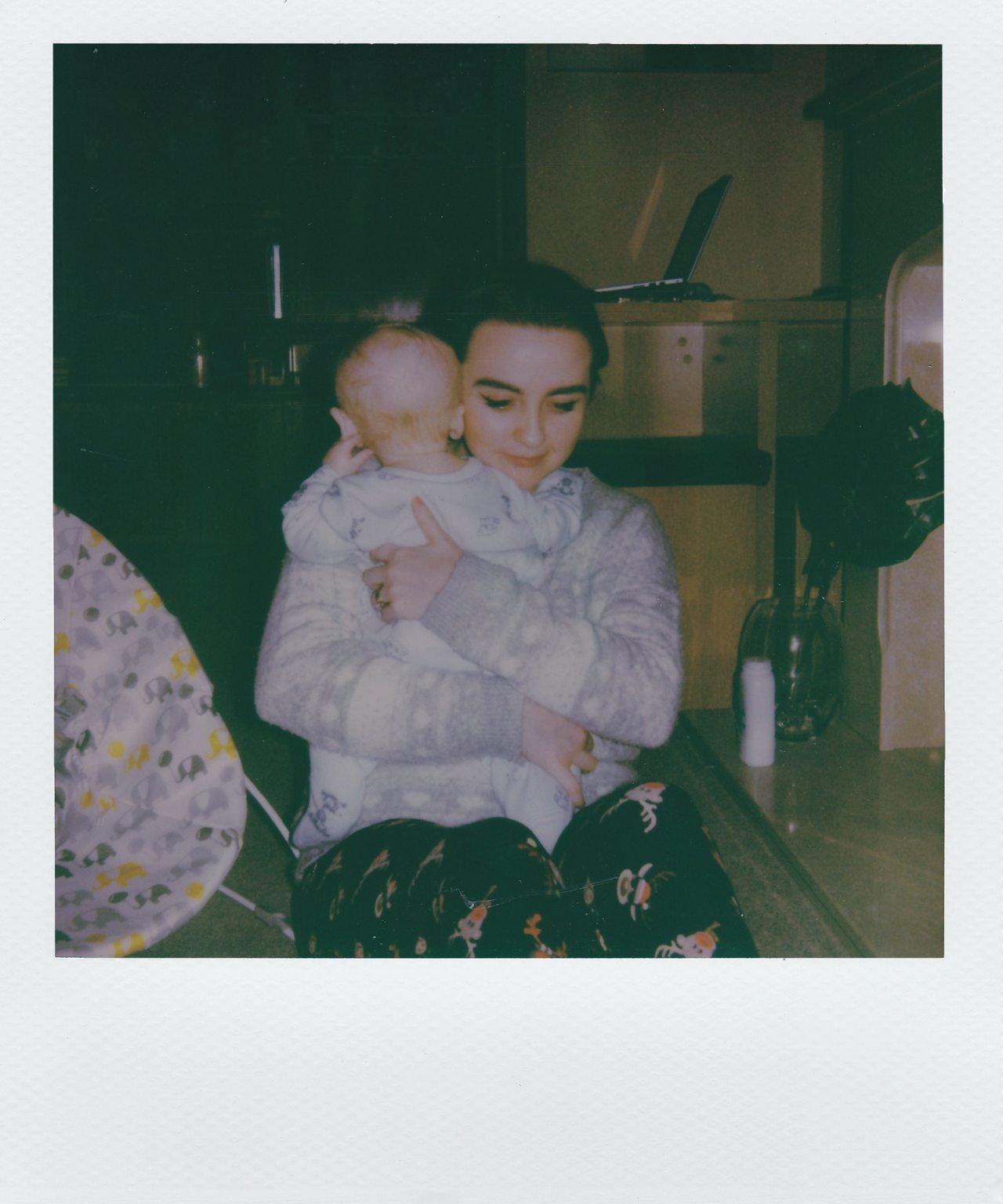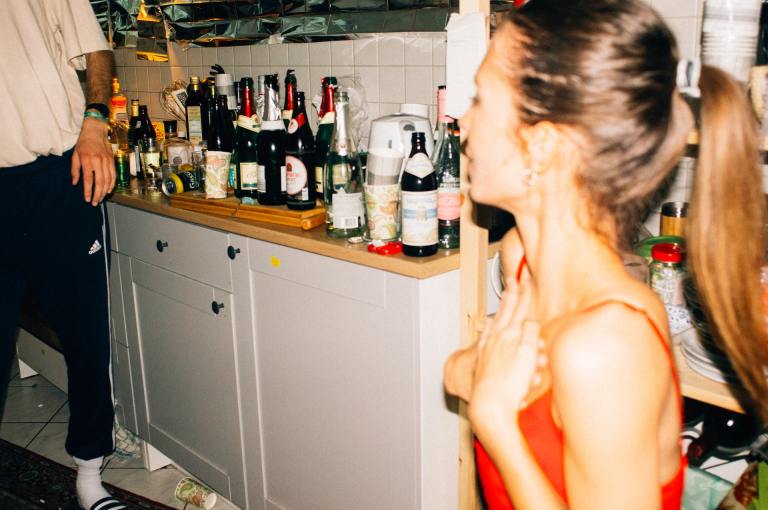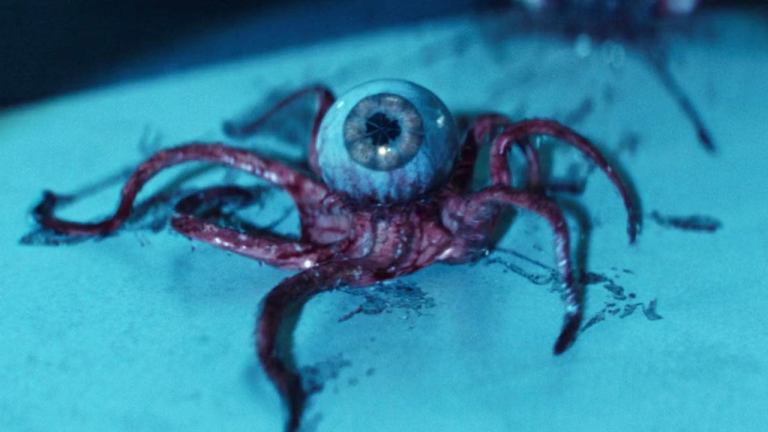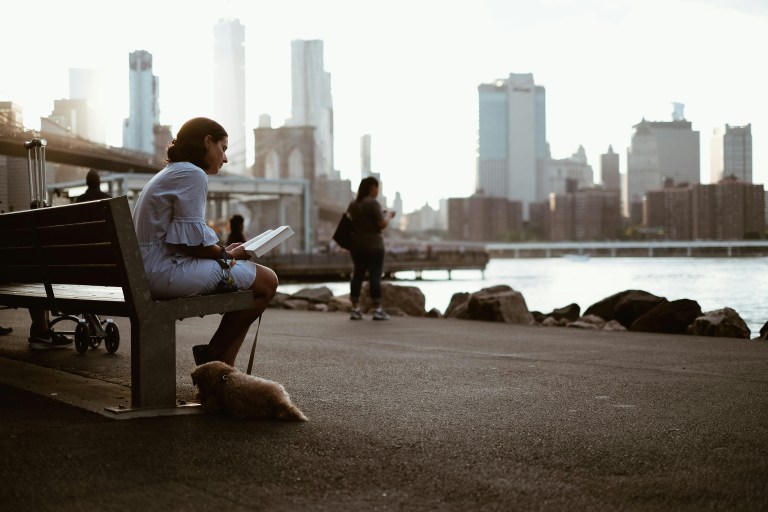
How A Trip To A Pediatric Burn Hospital Helped Me Heal Postpartum Anxiety
On some level, I believed that I could be a perfect mother. She was just beyond my fingertips. If only I strained and stretched a teeny bit more, like the toy truck under the table at the diner, just out of reach, but plainly visible between the spoons and bites of pancake that your son…
It was my turn to wake up with our son, but I was tired that Sunday morning, so we broke a lot of my rules. Still rubbing the sleep from our eyes, we settled onto the couch to watch Moana and share yogurt–yogurt with 15 grams of sugar, no less! I carefully scooped around the lemony jelly bits at the bottom, briefly considering if it was hypocritical or just bad diet that I ate those parts myself.
If I were a better parent, maybe we would be playing outside or making art or reading books. But I loved his warm little body cuddled up in my lap, brushing his too-long bangs out of his face as we both sat entranced by the Rock boastfully singing “You’re welcome!”
Eventually, he squirmed off my lap, likely when too much time had elapsed between musical numbers, and I reached for the first thing I could find to wipe the yogurt off his face and hands: yesterday’s bed shirt, which was still on the floor.
Throughout this–the sugary yogurt, the screen-time, the messy house–a hum of guilt played in the back of my mind. On some level, I believed that I could be a perfect mother. She was just beyond my fingertips. If only I strained and stretched a teeny bit more, like the toy truck under the table at the diner, just out of reach, but plainly visible between the spoons and bites of pancake that your son threw on the floor.
Of the many endless pressures of perfection, the greatest of all was the pressure to love every single moment.
“Don’t blink,” well-meaning strangers tell you at the grocery store, the bank, family parties. “It’ll be over before you know it.” And I’d walk away, scanning the shelves for goldfish and cheerios, while my son, likely gnawing on the very unhygienic safety strap in the grocery cart would smile up at me. I would smile back, wondering, am I doing this right? Loving this enough? Loving you enough?
Is this what it is supposed to feel like?
When Desi turned one week, I sobbed to my husband that it was going by too fast. “This is our life now,” he tried to reassure me. “We have our whole lives to love our son.”
“But today,” I said, hormonal tears streaming down my face, “Today is already almost over.”
I took Desi’s yogurt-covered shirt and walked towards the hamper in the next room. I’ve measured it since–six steps. Halfway there I thought of the tea I’d left on the side table, how easily my son could grab it. But I kept going; I was only a few steps away, and I would be back to him so quickly.
But it was too late. Standing over the hamper, I heard the sound of liquid hitting the floor. Time crawled as I threw myself towards him, as the rest of a very full cup of too-hot-to-drink tea fell on his tiny, fragile wrist.
I still remember his shock, as he held onto the empty mug, before he really started to cry.
I pulled up the sleeve on his fleece pjs–footies covered with dogs. When we put them on the night before, he proudly paraded around the house, pointing to his chest and saying “woof, woof.” Would he be too upset to wear them again?
I ran his wrist under cold water. Maybe he’s okay, I hoped as we then raced up the stairs to wake my husband. Maybe he’s just in shock.
When Desi was very little, I thought about death constantly. Crossing the street, and I’d see–in a flash–him falling from my arms to the pavement below. Walking downstairs, I’d see us both careening down the stairs, me bent over his tiny broken body. In my nightmares, my son kept almost dying–forgotten in the tub, lost in a pile of blankets, left in a car–always because I’d done something irresponsible or forgetful.
Never a “good sleeper,” Desi woke up often, wanting to be held, to nurse back to sleep. Inevitably, I’d wake up hours later still holding him, full of shame for having committed the pediatrician’s cardinal sin of falling asleep with my baby; even my own arms weren’t safe enough.
If I let myself envision the future–even, say, kindergarten–I was careful to offer a quick prayer that we be so lucky to make it that far, lest the universe punish me for my hubris.
This pressing anxiety was sandwiched between blissful moments playing in the grass, snuggling up for naps, reading books, blowing raspberries, exploring the world together. The joyful parts of new parenthood that you see in a Pampers commercial, interspersed with flashes of morbid fear.
All of this felt, if not normal, then obligatory, the only way to keep him safe. Maybe I had postpartum depression or anxiety. But so, then, do most mothers I’ve met. New motherhood is a study in love and trauma, a minefield of fear and grief. It’s not just the long nights–our hearts and souls are being remade, reordered around this tiny, fragile being and we can’t imagine how we’ll keep them safe and loved enough to make it through this life.
While I held my screaming toddler, my husband read from the screen of his phone, “He needs to take a 20-minute shower, to keep the burn from getting any deeper.” So we gently peeled off his pjs and diaper, and I climbed into the cool shower–still fully clothed. We stood in the water, as I sang nonsense songs and he cried so loud the house shook.
The rest of the day passed in a blur–the six-minute drive to the hospital, holding Desi wrapped in a blanket in the backseat. “You are safe. You are safe and loved,” I chanted over and over again, while my mild-mannered husband swore at the too-slow traffic. The team of ER nurses and doctors that piled into our room. I felt like the entire pediatrics ER team was in our room as I told the story, and I wondered, briefly, if they needed to make sure my grief was real, that I hadn’t done this to my son on purpose, that I was a good mom.
The tiny sticker the nurses wrapped around my son’s toe, to measure his heart rate, that he hated most of all. The pain medication that made him sleepy and loopy, and his giggles as my husband and I took turns prancing a toy cow back and forth on the bed. The relief in hearing that laugh.
The drive to Shriner’s, a pediatric burn hospital; holding hands in silence as our son slept in the back seat.
A nurse playing guitar and singing songs and blowing bubbles for my son, who sat mesmerized, smiling even, as a team examined and dressed his wound. My husband and I, singing along through our tears.
The grace of a nurse putting her hand on my shoulder, “It happens all the time.”
Back at home, with Desi’s arm carefully wrapped in gauze, he laughed with his grandparents, driving trucks and stacking blocks and already slam-dunking a toy basketball with his injured hand.
I went upstairs to shower, to breathe. The last time I had been in this shower, I was refusing to fall apart as I held my screaming toddler. His injury couldn’t be about me; I had to be the calm center in his storm. And now that the crisis had passed, I felt numb. I don’t remember what memory cracked me open—my son’s smile for the nurses, the weight of his little body in my arms on the drive to the hospital–but I know it was the tiniest of details that made my breath catch, and then the grief poured out.
I sat on the shower floor, heaving loud, dramatic sobs, until my husband came upstairs to wrap me in a towel and tuck me into bed. I was too sad to be embarrassed, and too tired to turn away his help.
“You are safe and you are loved,” I tell my son. It is my chant through temper tantrums and long car rides and lonely nights teething. It is the closest thing to armor in a world that holds things far scarier than a hot cup of tea, and if only he can have this–the feeling of safety and love to fall back on–I will have done my job.
But of course, I didn’t keep him safe, and he’ll have the scar, albeit faint, to prove it.
And all those times we wrestle over putting on his shoes, or I pretend to sleep for another 10 minutes while he babbles, or I check my phone at the playground, I cannot shake the anxiety that I’m not loving him and this enough. I worry that one day it will be me telling a young mother waiting at the deli counter about my own regrets. I remind myself that the fear itself is the thing blocking my joy, and for the most part that works.
I realize, now, that I’ve also been chanting about safety and love to comfort my own fears. My postpartum grief was so thick, I couldn’t see through it for over a year; it was just the way I knew how to inhabit the world as a new mother, desperate to be perfect for this tiny perfect human. Ironically, it took my son getting hurt to see how deep the hole I’d dug really was, to begin to climb out in earnest. At a check-up appointment, the nurse told us Desi is a “good healer.” She was, of course, referring to how quickly he was recovering from the burn, but I also thought of all the ways he’s helped me heal, all the fear I had to confront and subsequently release in loving him. Because loving him means loving myself, and fear, it turns out, cannot actually keep him safe.











